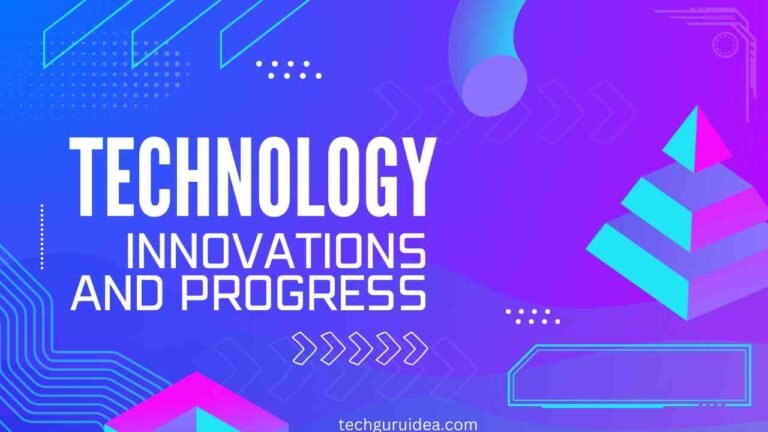What Is Remote Closing, How It Works
Remote closing refers to the process of completing a real estate transaction without all parties physically present in the same location. This method has become increasingly popular due to its convenience and efficiency, allowing buyers, sellers, and agents to finalize deals from anywhere in the world. Here’s a breakdown of what remote closing entails, how it works, and the steps to get started.
Table of Contents
What Is Remote Closing
Remote closing is a new and exciting career option for people who are interested in sales but want to work from home or anywhere in the world. Remote closers are sales professionals who specialize in closing deals and transactions remotely, often from a home office.
They communicate with clients and prospects through various digital channels, such as phone, email, and video conferencing. They use their skills and techniques to persuade them to buy high-ticket products or services.
Remote closing is not the same as traditional sales, where you have to meet with customers face-to-face, travel to different locations, or work in an office environment. Remote close offers more flexibility, autonomy, and income potential, as you can set your schedule, work with clients from different industries and countries, and earn commissions based on the importance of the products or assistance you sell.

Remote closing is also different from appointment setting, where you only have to book appointments for the closers, but not close the deals yourself. Remote closers are responsible for the entire sales process, from generating leads, conducting sales presentations, building relationships, negotiating deals, and finalizing contracts.
How It Works:
- Electronic Document Signing: Participants can electronically sign documents using secure platforms specifically designed for real estate transactions. These platforms typically employ encryption and authentication measures to ensure the integrity and legality of signatures.
- Virtual Communication: Communication between buyers, sellers, agents, and other stakeholders can take place via video conferencing, email, or messaging platforms. This allows parties to discuss terms, ask questions, and address concerns in real time without the need for face-to-face meetings.
- Secure Transactions: Remote closing platforms prioritize security to protect sensitive information and financial transactions. They may employ encryption, multi-factor authentication, and other security protocols to safeguard data and prevent unauthorized access.
- Legal Compliance: Distant closing processes adhere to applicable real estate laws and regulations to ensure the validity and enforceability of transactions. Participants must comply with legal requirements for electronic signatures and document execution to avoid potential challenges or disputes.
How To Get Started:
- Choose a Remote Closing Platform: Research and select a reputable faraway closing platform that meets your needs and preferences. Look for features such as secure document storage, electronic signature capabilities, and a user-friendly interface.
- Gather Necessary Documents: Compile all relevant documents required for the closing process, including purchase agreements, mortgage documents, and disclosure forms. Ensure that these documents are accurate, up-to-date, and legally compliant.
- Coordinate with Stakeholders: Coordinate with buyers, sellers, agents, lenders, and other parties involved in the transaction to schedule virtual meetings, review documents, and address any outstanding issues or questions.
- Complete Closing Process: Follow the instructions provided by the remote closing platform to electronically sign documents, submit required paperwork, and finalize the transaction. Verify that all parties have fulfilled their obligations and that the transaction is legally binding.
- Review Final Documents: Before completing the closing process, carefully review all final documents to ensure accuracy and completeness. Verify important details such as purchase price, closing costs, and financing terms to avoid any misunderstandings or discrepancies.
What are the benefits of remote closing?
Remote closing has many benefits, both for the remote closers and the businesses they work with. Here are some of the main advantages of remote closing:
- Higher-income potential: Remote closers can earn more money than traditional salespeople, as they can sell more expensive and complex products or services, and get a percentage commission of the sale value. Depending on the niche, the commission rate can range from 10% to 30%, which means that remote closers can make anywhere from $2,000 to $10,000+ per sale. Some remote closers can make six figures or more per year, working part-time or full-time.
- More flexibility and freedom: Remote closers can work from anywhere in the world, as long as they have a reliable internet connection, a phone, and a computer. They can also choose their working hours, clients, and niches, and balance their work and personal life according to their preferences and goals. Remote closers can also travel and explore new places, while still making money and closing deals.
- More opportunities and variety: Remote closers can work with different types of clients, from online entrepreneurs, coaches, and consultants, to real estate agents, software developers, financial advisors, and more. They can also sell different types of products or services, from online courses, coaching programs, and software solutions, to real estate properties, industrial equipment, financial products, and more. Remote closers can learn new skills and knowledge, expand their network, and diversify their income streams.
- More satisfaction and fulfillment: Remote closers can enjoy more satisfaction and fulfillment from their work, as they can help their clients solve their problems, achieve their goals, and improve their lives. Remote closers can also use their creativity, personality, and passion to connect with their prospects and close deals. Remote closers can also grow personally and professionally, as they face new challenges and opportunities every day.
How to become a remote closer?
If you are interested in becoming a remote closer, here are some steps you can take to get started:
- Learn the skills and techniques of remote closing: It require a specific set of skills and techniques, such as communication, persuasion, negotiation, objection handling, rapport building, and closing. You can learn these skills and techniques by taking online courses, reading books, watching videos, listening to podcasts, or joining coaching programs. You can also practice your skills and techniques by role-playing with other remote closers, or by applying them in real-life situations.
- Choose your niche and offer: Remote closing can be done in various niches and industries, but it is advisable to choose one that matches your interests, expertise, and goals. You can also choose an offer that suits your skills, experience, and personality. For example, if you are good at explaining complex concepts, you can choose a software or education niche. If you are good at building trust and rapport, you can choose a coaching or consulting niche. You can also research the market demand, competition, and profitability of your niche and offer, and find out what problems, needs, and desires your prospects have.
- Find clients and prospects: Once you have chosen your niche and offer, you need to find clients and prospects to work with. You can find clients by networking with other remote closers, joining online communities and platforms, reaching out to online businesses, or creating your brand and website. You can find prospects by generating leads through various methods, such as referrals, research, social media, email marketing, or paid advertising. You can also use tools and software to automate and streamline your lead generation and follow-up process.
- Close deals and transactions: The final step is to close deals and transactions with your prospects. You can do this by scheduling and conducting sales calls, delivering engaging and persuasive sales presentations, answering questions and objections, negotiating terms and prices, and finalizing contracts and payments. You can also use tools and software to record and track your sales calls, send and sign contracts, and collect payments. You can also use scripts and templates to guide your sales conversations and increase your conversion rate.
Is remote closing legit?
Remote closing is a legitimate and legal career option, as long as you follow the ethical and professional standards of sales and business. Remote close is not a scam or a get-rich-quick scheme, as it requires hard work, dedication, and continuous learning and improvement. Faraway closing is also not a pyramid scheme or a multi-level marketing (MLM) business, as you do not have to recruit or pay anyone to join or work with you. Remote close is a service-based business, where you provide value to your clients and prospects, and get paid for the results you deliver.
Remote closing is also regulated and compliant with the laws and regulations of the countries and states where you and your clients operate. You may need to obtain certain licenses, permits, or certifications, depending on the niche and industry you work in. You may also need to pay taxes and fees, depending on your income and location. You can consult with a lawyer or an accountant to find out the legal and financial requirements and obligations of isolated closing in your area.

Conclusion
Remote closing is a new and exciting career option for people who are interested in sales but want to work from home or anywhere in the world. Remote closers are sales professionals who specialize in closing deals and transactions remotely, often from a home office. They communicate with clients and prospects through various digital channels, such as phone, email, and video conferencing. They use their skills and techniques to persuade them to buy high-ticket products or services.
Remote closing has many benefits, such as higher income potential, flexibility and freedom, opportunities and variety, and satisfaction and fulfillment. Distant closing also requires some skills and techniques, such as communication, persuasion, negotiation, objection handling, rapport building, and closing. Remote close can be done in various niches and industries, such as online courses, coaching, software, real estate, and more.
To become a remote closer, you need to learn the skills and techniques of remote closing, choose your niche and offer, find clients and prospects, and close deals and transactions. You also need to follow the ethical and professional standards of sales and business and comply with the laws and regulations of your area.
Remote closing is a legitimate and legal career option, not a scam or a scheme. Distant closing is a service-based business, where you provide value to your clients and prospects, and get paid for the results you deliver.
FAQs
What is a remote closing strategy?
Remote closing strategy refers to the approach and methods used to complete real estate transactions without all parties being physically present in the same location. It involves utilizing technology, such as electronic signatures and virtual communication, to facilitate the closing process remotely.
How do I get into remote closing?
To get into small closing, you can start by researching and familiarizing yourself with remote closing platforms and technologies. Additionally, consider networking with real estate professionals who have experience with remote transactions, attending training sessions or webinars on isolated closing, and staying updated on relevant laws and regulations governing remote transactions in your area.
Can you make money with remote closing?
Yes, you can make money with remote closing. Real estate professionals, such as agents, brokers, and closing coordinators, can earn commissions or fees by facilitating remote transactions for their clients. By embracing distant closing strategies, you can expand your client base, increase efficiency, and potentially earn more income.
What is remote closing UK?
Remote closing in the UK refers to the process of completing real estate transactions remotely, utilizing electronic signatures, virtual communication, and secure online platforms. It allows buyers, sellers, agents, and other stakeholders to finalize deals without the need for face-to-face meetings, offering convenience and flexibility.
What are the benefits of remote closing?
The benefits of remote closing include:
Convenience: Allows parties to complete transactions from anywhere with an internet connection.
Efficiency: Reduces the time and logistical challenges associated with traditional in-person closings.
Cost Savings: Minimizes travel expenses and eliminates the need for physical document storage.
Flexibility: Enables transactions to proceed smoothly even when parties are located in different geographic areas.
Security: Utilizes encryption and authentication measures to protect sensitive information and financial transactions.
What is remote inbound closing?
Remote inbound closing refers to the process of handling inbound leads or inquiries related to real estate transactions remotely. It involves using technology and virtual communication channels to engage with potential clients, provide information, answer questions, and ultimately guide them through the closing process without the need for in-person interactions.
If you want to read more articles similar to What Is Remote Closing, How It Works, we recommend entering our Technology category.






